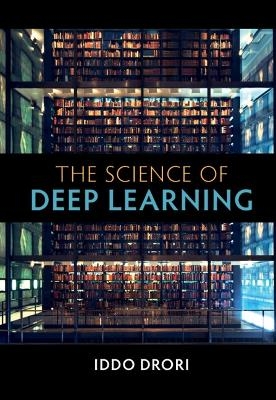
The Science of Deep Learning
Cambridge University Press (Verlag)
978-1-108-83508-4 (ISBN)
The Science of Deep Learning emerged from courses taught by the author that have provided thousands of students with training and experience for their academic studies, and prepared them for careers in deep learning, machine learning, and artificial intelligence in top companies in industry and academia. The book begins by covering the foundations of deep learning, followed by key deep learning architectures. Subsequent parts on generative models and reinforcement learning may be used as part of a deep learning course or as part of a course on each topic. The book includes state-of-the-art topics such as Transformers, graph neural networks, variational autoencoders, and deep reinforcement learning, with a broad range of applications. The appendices provide equations for computing gradients in backpropagation and optimization, and best practices in scientific writing and reviewing. The text presents an up-to-date guide to the field built upon clear visualizations using a unified notation and equations, lowering the barrier to entry for the reader. The accompanying website provides complementary code and hundreds of exercises with solutions.
Iddo Drori is a faculty member and associate professor at Boston University, a lecturer at MIT, and adjunct associate professor at Columbia University. He was a visiting associate professor at Cornell University in operations research and information engineering, and research scientist and adjunct professor at NYU Center for Data Science, Courant Institute, and NYU Tandon. He holds a PhD in computer science and was a postdoctoral research fellow at Stanford University in statistics. He also holds an MBA in organizational behavior and entrepreneurship and has a decade of industry research and leadership experience. His main research is in machine learning, AI, and computer vision, with 70 publications and over 5,100 citations, and he has taught over 35 courses in computer science. He has won multiple competitions in computer vision conferences and received multiple best paper awards in machine learning conferences.
Preface; Notation; Part I. Foundations: 1. Introduction; 2. Forward and backpropagation; 3. Optimization; 4. Regularization; Part II. Architectures: 5. Convolutional neural networks; 6. Sequence models; 7. Graph neural networks; 8. Transformers; Part III. Generative Models: 9. Generative adversarial networks; 10. Variational autoencoders; Part IV. Reinforcement Learning: 11. Reinforcement learning; 12. Deep reinforcement learning; Part V. Applications: 13. Applications; Appendices; References; Index.
| Erscheinungsdatum | 30.08.2022 |
|---|---|
| Zusatzinfo | Worked examples or Exercises |
| Verlagsort | Cambridge |
| Sprache | englisch |
| Maße | 175 x 250 mm |
| Gewicht | 820 g |
| Themenwelt | Informatik ► Theorie / Studium ► Künstliche Intelligenz / Robotik |
| Mathematik / Informatik ► Mathematik ► Angewandte Mathematik | |
| Mathematik / Informatik ► Mathematik ► Finanz- / Wirtschaftsmathematik | |
| ISBN-10 | 1-108-83508-2 / 1108835082 |
| ISBN-13 | 978-1-108-83508-4 / 9781108835084 |
| Zustand | Neuware |
| Haben Sie eine Frage zum Produkt? |
aus dem Bereich


